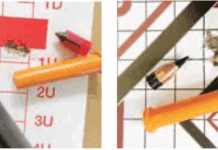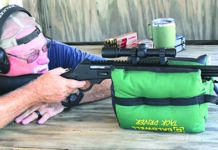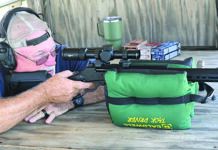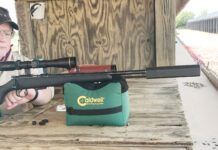The United States Court of Appeals for the Tenth Circuit ruled on August 19 that New Mexico’s seven-day waiting period for firearm purchases infringes on the Second Amendment by preventing the lawful acquisition of firearms. The case is called Ortega v. Grisham.
Judge Timothy Tymkovich wrote in the split panel 2-1 ruling, “Cooling-off periods do not fit into any historically grounded exceptions to the right to keep and bear arms, and burden conduct within the Second Amendment’s scope. We conclude that New Mexico’s Waiting Period Act is likely an unconstitutional burden on the Second Amendment rights of its citizens.”
“We could not have hoped for a better decision when it comes to an Appellate Court upholding our Second Amendment protected rights than the one issued by the 10th Circuit in the Ortega case,” said Mountain States Legal Foundation’s Center to Keep & Bear Arms Director Michael McCoy. “The 10th Circuit reaffirmed that the Second Amendment is not a ‘second-class’ right that can be arbitrarily delayed at the whim of the State. It’s a God-given right that all Americans have a right to freely and fully exercise.”
The named plaintiff in the case is retired law enforcement officer Samuel Ortega. Mountain States Legal Foundation (MSLF) and the National Rifle Association supplied legal representation. “Grisham” in the case name is New Mexico Governor Michelle Lujan Grisham.
John Commerford, NRA-ILA’s executive director, said, “The 10th Circuit has sided with the NRA and held that radical waiting period laws are indeed unconstitutional. This decision not only impacts gun owners in New Mexico but serves as a key piece in dismantling similar gun control laws across the country.”
New Mexico’s 2024 law (HB 129) required buyers to wait seven calendar days between purchase and transfer, even after a successful background check.
The district court declined to preliminarily enjoin the law. It found that “a seven-day wait did not infringe on Second Amendment rights since the right to acquire a firearm does not impede the right to keep or bear a firearm, and, in any event, the Second Amendment tolerates cooling-off periods.”
However, gun owners should know that the decision does not take immediate effect because the Tenth Circuit’s mandate has not been issued yet. The earliest the mandate could come is 21 days from the date of the decision.
A longer delay could come because state might seek rehearing of the decision by the full court.
If the decision holds, it could imperil Colorado’s minimum three‑day waiting period passed in 2023. Colorado is one of several states that would be covered by the 10th Circuit’s ruling.
In the decision, the Tenth Circuit distinguished between individuals who immediately pass the background check and those who receive a “delayed” response. The Tenth Circuit left it for the district court to craft an injunction that would stop the waiting period for shooters who get a NICS “proceed” clearance — they would be able to receive their firearms immediately. Shooters who get a delayed NICS response would not be able to pick up their guns until they clear the federal background check.
On May 15, 2024, the NRA, in coordination with the Mountain States Legal Foundation, filed Ortega v Grisham, a lawsuit challenging New Mexico’s seven-day waiting period law.
On Monday, July 22, 2024, the U.S. District Court for the District of New Mexico denied the plaintiffs’ motion for a temporary restraining order and preliminary injunction against New Mexico’s law requiring individuals to wait seven days before taking possession of any firearm they purchase.
On August 19, 2025, the 10th Circuit Court reversed and remanded this decision, ruling the law is unconstitutional and ordered a preliminary injunction to ensure the rights of law-abiding citizens are no longer infringed.
This ruling was based on the landmark Bruen Supreme Court case, which held that gun control laws are unconstitutional unless they are consistent with the nation’s historical tradition of firearms regulation.
The 10th Circuit also said in the decision that “common sense dictates that the right to bear arms requires a right to acquire arms, just as the right to free press necessarily includes the right to acquire a printing press, or the right to freely practice religion necessarily rests on a right to acquire a sacred text. Legal interpretation follows that common sense.”

























